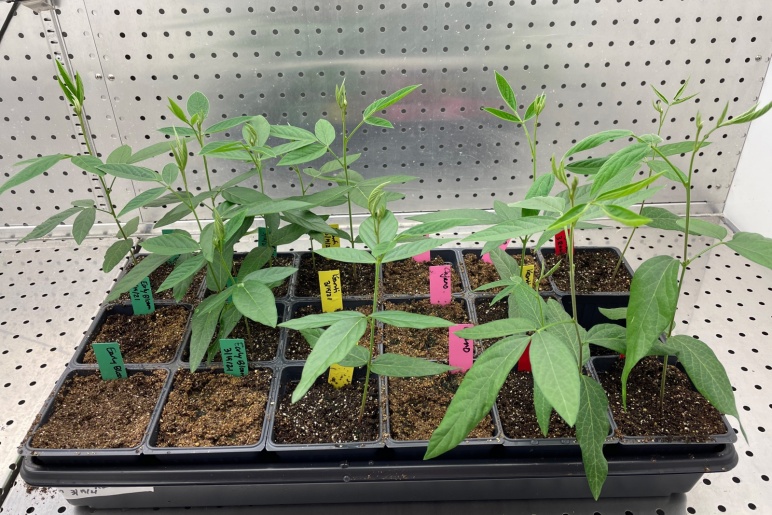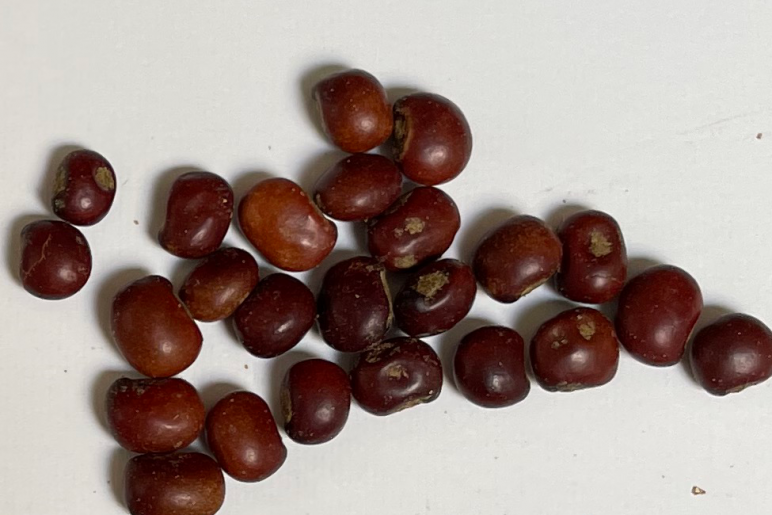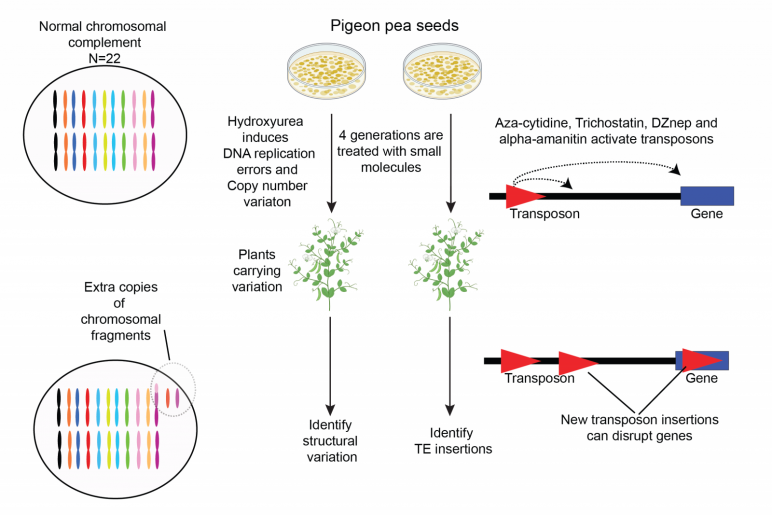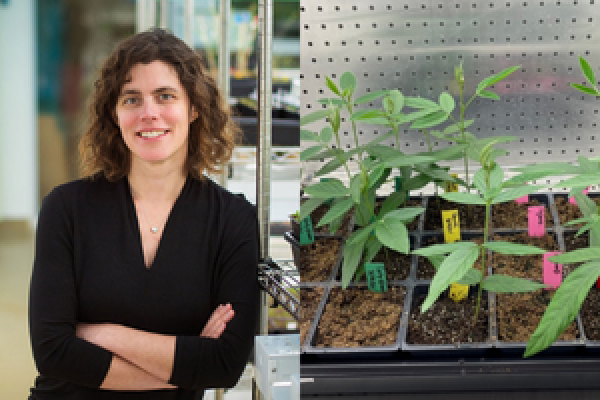Our Research A new approach to enhance genetic diversity to improve crop breeding

Pigeon pea (Cajanus cajan) seedlings growing in a growth chamber. Image Credit: Mary Gehring

Pigeon pea seeds. Image Credit: Mary Gehring

Strategy for creating genetic variation in which multiple genes are affected simultaneously. Image Credit: Satyaki Rajavasireddy
Principal Investigator
Mary Gehring
- Professor
- Department of Biology
- Whitehead Institute
Mary Gehring is a member of the Whitehead Institute for Biomedical Research and a Professor of Biology. Her research primarily focuses on the genetics and epigenetics of seed biology in plants. Mary received her PhD in plant biology from the University of California, Berkeley and performed postdoctoral research at the Fred Hutchinson Cancer Research Center. She is the past recipient of an NSF CAREER award and the Rosalind Franklin Young Investigator award.
Challenge:
How can we accelerate the production of genetic diversity to generate plant populations better suited to challenging environmental conditions?
Research Strategy
- Employ novel strategies to generate genetic variation in crop plants by altering gene copy number and activating mobile DNA
- Using the dryland crop pigeon pea as test case, identify genetic variants that are more resistant to heat shock or increased salinity
Project description
Guaranteeing food security for all of humanity requires that we increase agricultural productivity while adapting crops to pathogens, elevated temperatures, sporadic rainfall and rising soil salinity caused by environmental degradation, climate change, and rising sea levels. Traditional plant breeding approaches have powered past agricultural revolutions, but are dependent on a species having existing sufficient genetic diversity from which to select traits of interest. However, these approaches may be less efficient in orphan and neglected crops and in species where genetic diversity is threatened by climate change-driven extinction events. This research team aims to design a universally applicable method that can increase genetic diversity to help species adapt to climate change and, at the same time, generate new knowledge about the biology of these species to allow for more targeted changes in the future. Currently popular breeding practices rely on natural variation or on variation introduced by mutagens that cause changes to single bases in the DNA. We propose to improve plant breeding by unleashing the mutagenic potential of malfunctioning DNA replication and by inducing transposable element proliferation. These approaches are predicted to create changes in multiple genes simultaneously. The team will test this innovative approach in the orphan crop pigeon pea and screen for variants with resistance to salinity and heat stress. These efforts will reinforce food security by creating a new technique to evolve crops that are potentially more adapted to changes in global climate.
Outcomes
- Developed a simple, inexpensive, accessible method to induce structural variation in any plant species of interest
- Piloted the method in a model plant species (Arabidopsis thaliana) and identified structural variants underlying mutant phenotypes of interest
- Developed approaches for applying the mutagenesis approach in Cajanus cajan
- Created an etoposide-mutagenized population of C. cajan and sequenced the genomes of two C. cajan strains
News
Additional Details
Impact Areas
- Food
- Climate & Sustainability
Research Themes
- Sustainability & Adaptation
- Soil Fertility & Crop Productivity
Year Funded
- 2021
Grant Type
- Seed Grant
Status
- Completed

